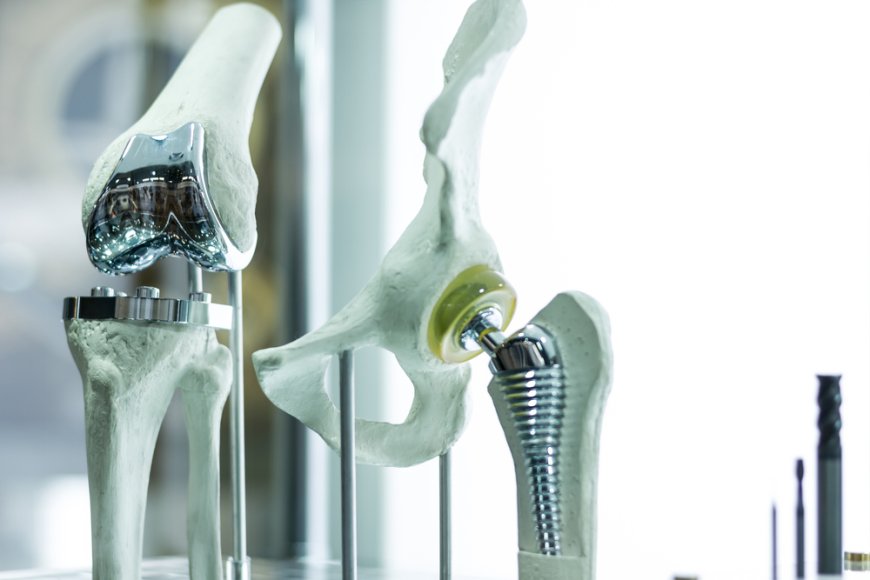How to Maintain Joint Health After Hip and Knee Surgery in Karachi?
Discover essential tips for maintaining joint health after hip and knee surgery in Karachi. Learn about rehabilitation plans, nutrition, low-impact activities, and more to ensure a successful recovery and improved mobility.

Undergoing hip or knee surgery can significantly improve mobility and quality of life, but maintaining joint health afterward is essential for long-term success. In Karachi, where healthcare resources and support systems are available, patients can take proactive steps to ensure their joints remain healthy and functional post-surgery. This blog provides valuable insights and practical tips for maintaining joint health after hip and knee surgery in Karachi.
1. Follow Your Rehabilitation Plan
A well-structured rehabilitation plan is crucial for recovery. After surgery, your orthopedic surgeon and physical therapist will develop a tailored rehabilitation program that may include:
- Physical Therapy: Attend all scheduled physical therapy sessions to strengthen the muscles surrounding the joint and improve range of motion.
- Home Exercises: Perform recommended exercises at home to support your recovery, focusing on flexibility, strength, and balance.
- Gradual Progression: Follow a gradual progression in activity levels as advised by your healthcare provider, avoiding any high-impact activities until cleared.
2. Maintain a Healthy Weight
Excess body weight can place additional stress on your joints, especially after surgery. To support joint health:
- Balanced Diet: Follow a nutritious diet rich in fruits, vegetables, whole grains, lean proteins, and healthy fats. Foods high in omega-3 fatty acids, such as fish, can help reduce inflammation.
- Hydration: Stay well-hydrated to support overall health and aid recovery.
- Weight Management: If you're overweight, work towards achieving a healthy weight through a combination of diet and exercise.
3. Stay Active
Engaging in regular, low-impact physical activity is vital for maintaining joint health. In Karachi, consider the following activities:
- Walking: Simple and effective, walking can help improve circulation and strengthen muscles without putting undue stress on your joints.
- Swimming and Water Aerobics: These activities provide resistance while minimizing joint strain, making them ideal for post-surgery recovery.
- Cycling: Using a stationary bike can improve leg strength and flexibility while being gentle on your joints.
4. Manage Pain and Inflammation
After surgery, some discomfort is normal, but managing pain and inflammation is essential for recovery. Consider the following:
- Medication: Take prescribed pain medications as directed and consult your doctor if you have concerns about managing pain.
- Ice Therapy: Apply ice packs to the surgical site for 15-20 minutes at a time to reduce swelling and inflammation.
- Rest: Ensure adequate rest to promote healing, but balance it with gentle movement to prevent stiffness.
5. Focus on Nutrition for Joint Health
Certain nutrients are vital for joint health and recovery after hip and knee surgery. Consider incorporating the following into your diet:
- Calcium and Vitamin D: Essential for bone health, include dairy products, leafy greens, and fortified foods in your diet. Sun exposure can help with vitamin D synthesis, but supplements may be necessary, especially in winter.
- Collagen: Foods rich in collagen or supplements can support joint health and recovery. Bone broth and fish are excellent sources.
- Antioxidants: Foods rich in antioxidants, such as berries, nuts, and dark chocolate, can help combat inflammation and promote healing.
6. Avoid High-Impact Activities
While staying active is important, certain high-impact activities can strain your joints. Avoid the following:
- Running and Jogging: These activities can put significant stress on the hip and knee joints. Opt for low-impact alternatives instead.
- Jumping Exercises: Activities that involve jumping or sudden direction changes should be avoided to protect your joints during the recovery phase.
7. Regular Follow-Up Appointments
Maintaining regular follow-up appointments with your orthopedic surgeon is essential for monitoring your recovery. During these visits, your doctor can:
- Assess your healing progress and address any concerns.
- Modify your rehabilitation plan based on your recovery.
- Provide advice on maintaining joint health and preventing complications.
8. Listen to Your Body
Pay attention to your body’s signals as you recover. If you experience increased pain, swelling, or discomfort during certain activities, consult your healthcare provider. It’s essential to differentiate between normal post-surgical discomfort and signs of potential complications.
Conclusion
Maintaining joint health after hip and knee surgery is crucial for a successful recovery and long-term well-being. By following a comprehensive rehabilitation plan, staying active, managing weight, and focusing on nutrition, patients in Karachi can enjoy improved mobility and quality of life. Remember that ongoing communication with your healthcare team and listening to your body are key components of a successful recovery journey. With dedication and the right approach, you can support your joint health and enjoy an active lifestyle.

 Anokshi kumari
Anokshi kumari 










